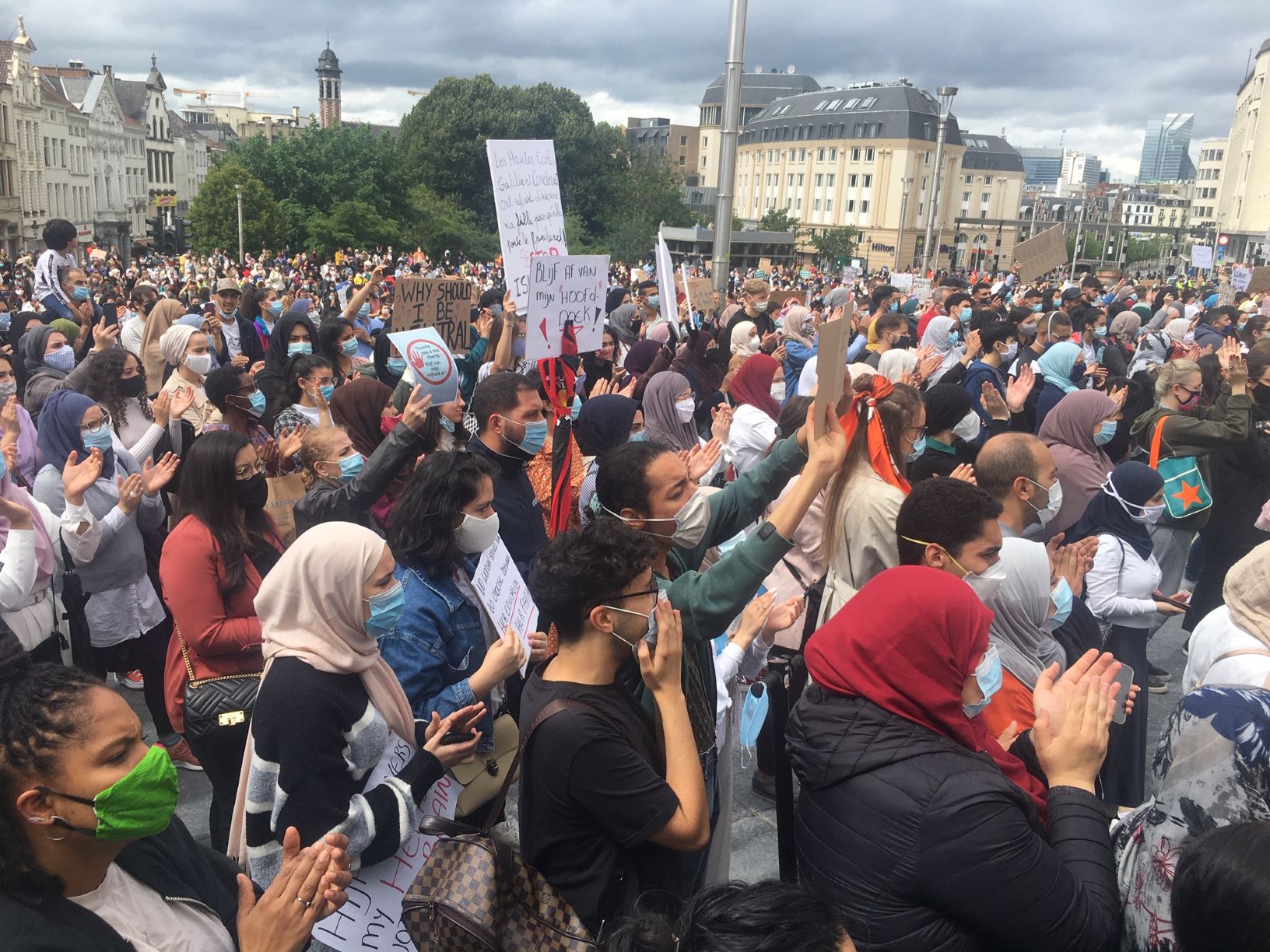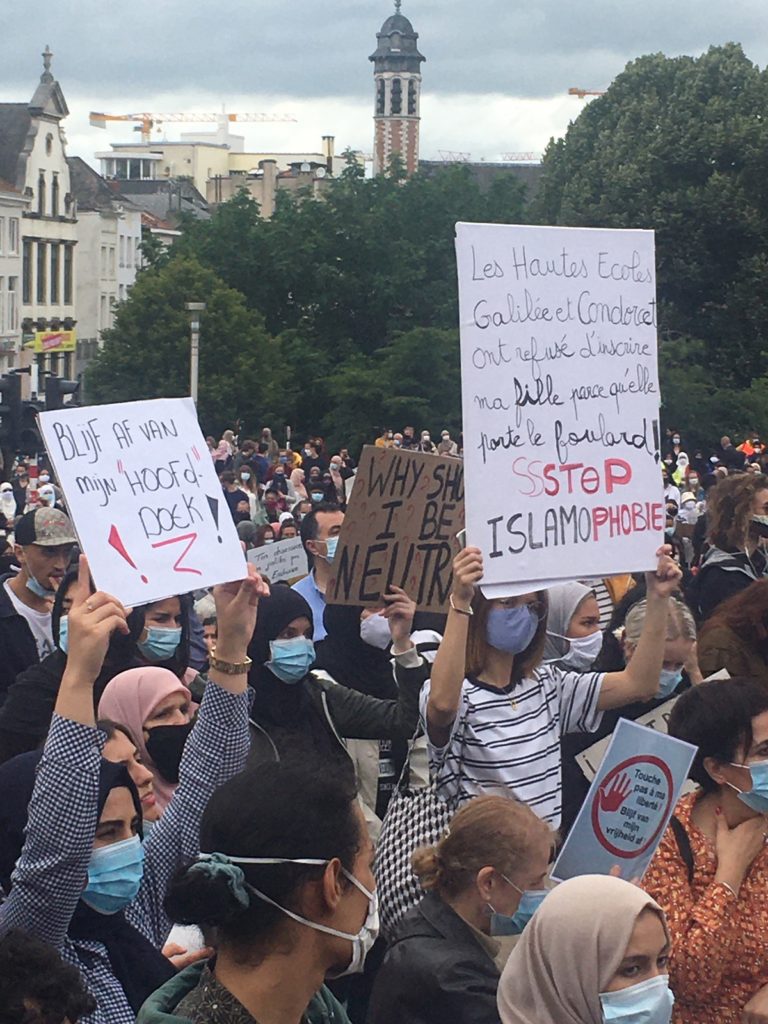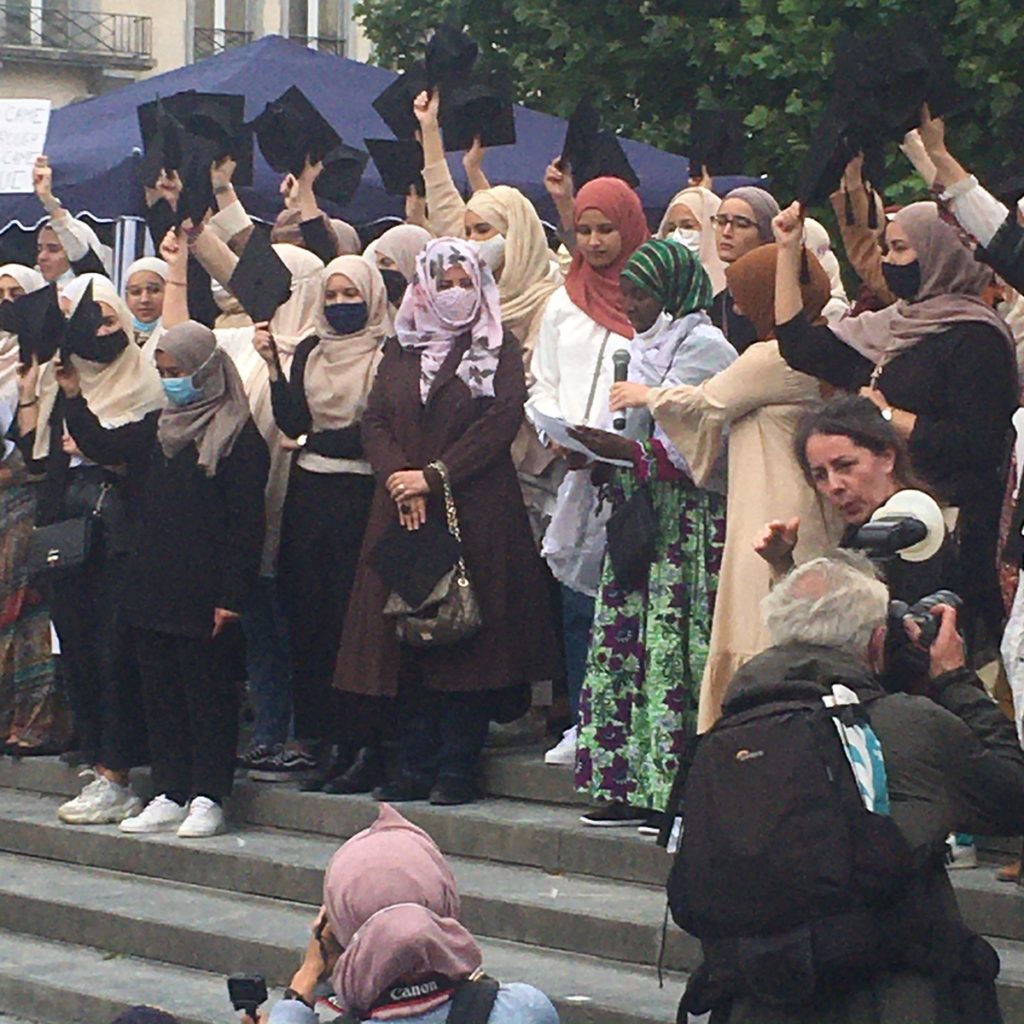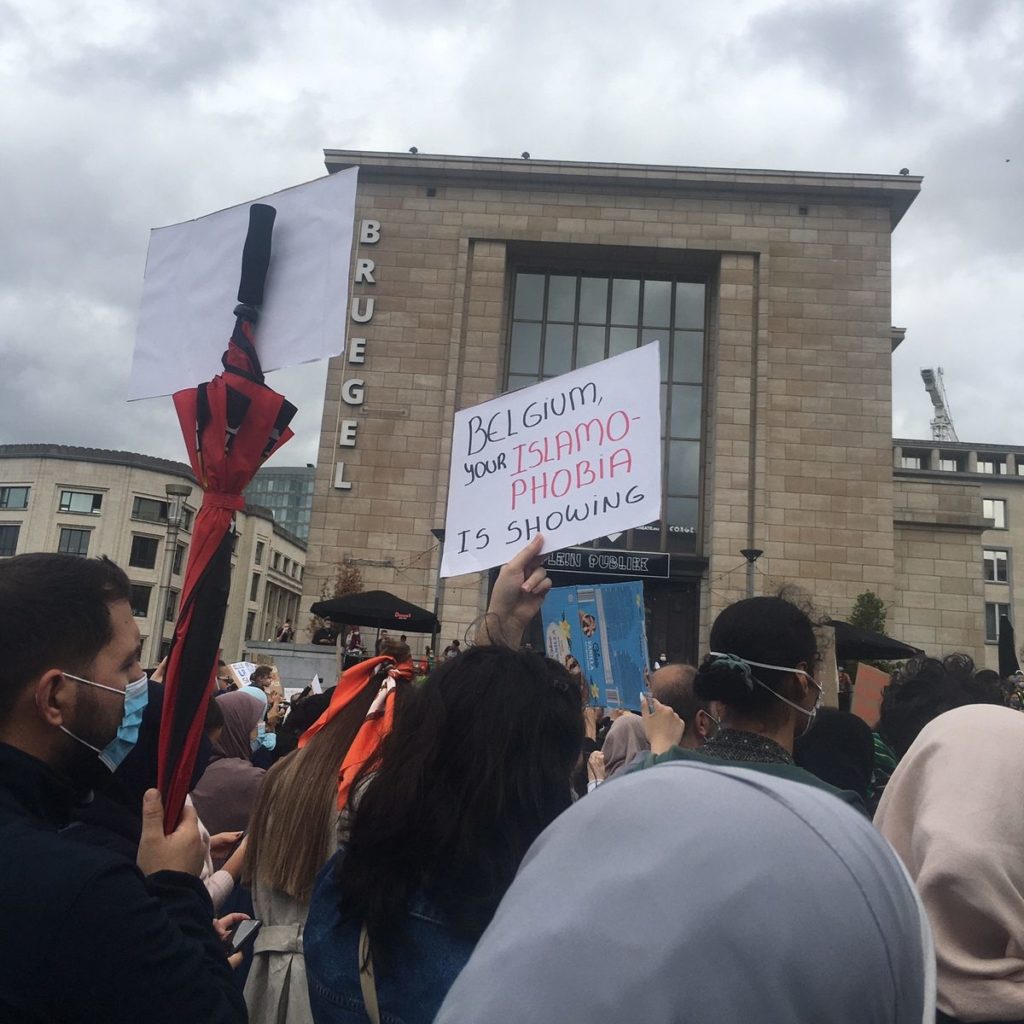Over the course of the last weeks, there has been a significant level of mobilization among Belgium’s Muslim community under the hashtag #hijabisfightback. The reason? A recent ruling of the country’s highest court that permits institutions of higher education to ban the wearing of visible religious, political and philosophical signs on their premises, namely the Haute Ecole Francisco Ferrer (HEFF).
On 5 July, the mobilization efforts led to a public gathering in the country’s capital with over a thousand participants, assembling believers and non-believers alike, all protesting the adverse effects the judgment has on hijabi women.
The ban draws heavily from the principle of neutrality, which is a constitutional right in Belgium, as is the freedom of religion and belief. In practice, this means that the school has the right to create a “totally neutral educational environment (…) in which students are not exposed to any attempt to influence their political, philosophical and religious opinions or convictions”. How this is possible, in an institution, that offers courses in “philosophy and citizenship education” or “morals” is very difficult to imagine.
It does not come as a surprise to see Muslim women being conceptualized as being in a state of helplessness and as a subject that needs to be protected from the dangers that carries the Islamic veil.
The city of Brussels, acting as a defendant in the case, even went further. In fact, such a ban is not only about neutrality, the city claimed, but especially about “protecting” young Muslim women that do not wear the hijab from the social pressure that could be exerted on them by Muslim women who in turn wish to make their religious beliefs visible.
Say again? Yes, according to the city of Brussels, Muslim women that do not wear a veil need special state protection from the mere sight of women who choose to make their religious beliefs visible, i.e. wear a hijab. Let us not forget about the amounts of pressure that this ostentatious showing of hijabs might put them through.
This paternalistic image of Muslim women not wearing the hijab completely ignores that there is a world outside of the walls of the school. Both hijabi and non-hijabi Muslims enter regularly in contact with each other, see each other in the streets and maintain many sorts of relations with one another. Some of these interactions might even take place within the same family. Interestingly, nowhere in the judgment is there mention of the dangerous effects that the wearing of political signs such as for instance a Che Guevera t-shirt could have on students who hold political convictions which do not align with the revolutionary radicalism he stood for.
It does not come as a surprise to see Muslim women being conceptualized as being in a state of helplessness and as a subject that needs to be protected from the dangers that carries the Islamic veil. In today’s times, the Islamic headscarf has turned into a highly politicized piece of clothing, whose demonization ban can be traced all the way back to colonial times. According to Zine, hijabophobia is a discourse that is “historically entrenched within Orientalist representations that cast colonial Muslim women as backward, oppressed victims of misogynist societies.
But this piece of clothing that is the hijab means so much more
As Homa Hoodfar observes the act of “veiling is a lived experience full of contradictions and multiple meanings. While it has clearly been a mechanism in the service of patriarchy, a means of regulating and controlling women’s lives, women have used the same social institution to free themselves from the bonds of patriarchy.” In most cases, veiling is a freely adopted practice and has nothing to do with oppression. Muslim women have explained this time and time again, only for their words to fall upon deaf ears. Branding the hijab as a symbol of backwardness and short sightedness is not a new phenomenon. Inspired by Atatürk’s secularism in Turkey, the Iranian Pahlavi dynasty battled as early as 1936 veiling as a hindrance to modernization and enforced mandatory unveiling by decree upon its population.
Advocating freedom and equality for women cannot mean depriving them of the chance to decide on their future.
The forceful unveiling led many Iranian women at the time to stay at home and to participate less in social life. Similarly, the 2004 headscarf ban in France reduced the socioeconomic integration of Muslim women in the country. But in our ‘modern’ societies the discrimination of Muslim women comes in the guise of feminism, liberation, secularism and neutrality. It is not only this preliminary judgment of the Belgian constitutional court. The marginalization of Muslim women has been going on for some time now. This kind of forceful integration is nothing else than an expression of gender-specific islamophobia but brands itself as pushing a feminist agenda in the name of sexual equality and liberation.
In the words of Belgian judge, Françoise Tulkens who issued a remarkable dissenting opinion to a case that allowed for a headscarf ban at Turkish universities on the grounds of sexual equality and secularism: “Advocating freedom and equality for women cannot mean depriving them of the chance to decide on their future.” She goes on to observe, “What is lacking in this debate is the opinion of women, both those who wear the headscarf and those who choose not to.”
At the recent demonstration in Brussels, the founders of #hijabifightback were clear with their message – “do not liberate us; we can take care of ourselves”
The author of this piece would like to extend her gratitude to Claire Gilder for her contributions to the piece.









[…] Hijabis Fight Back Previous Post: « India’s Negligence of Its Women Has Gone on for Too Long […]
Thank you for this great article!